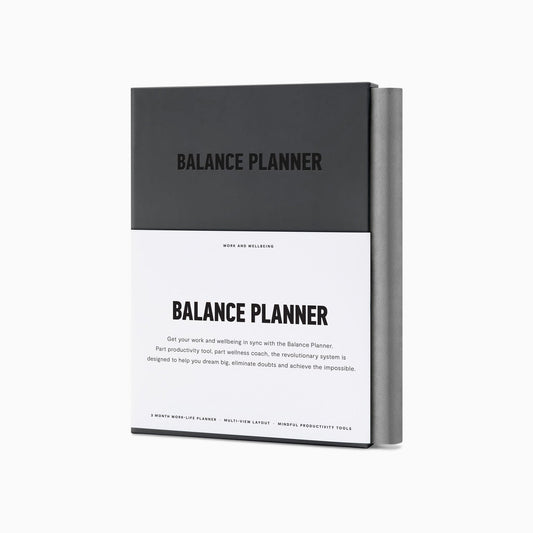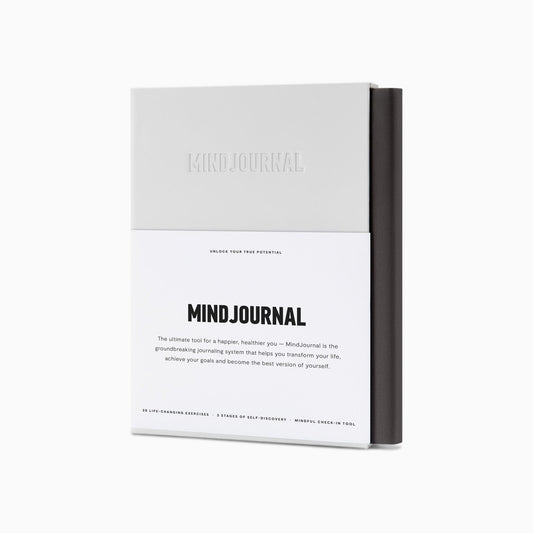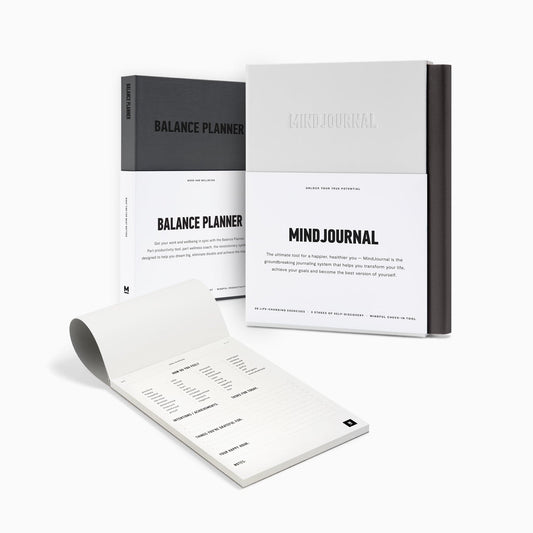Start your journey
Browse our bestsellers for a better you.
Frequently added:




by MindJournal – 4 min read

A year of on-off lockdown had an unexpected impact on our lives — not least being stuck at home with only Netflix for company — including a new litany of hard-to-shake habits.
Most of us are guilty of them: the constant snacking; the one-too-many beers in front of the TV; checking emails when we should be clocking off.
Lockdown, it seems, has been fertile ground for making new habits. "There's some evidence that habits form more quickly when we're stressed," says Dr Phillippa Lally, a behavioural expert from University College London. "If we're under any kind of pressure, our resources are diverted elsewhere and we rely on our habits to function."
Habits — good or bad — are triggered by cues: a time, a place, an emotional state. With lockdown disrupting our day-to-day lives, those cues have also been affected, leading to new habits that have a very real effect on our health and wellbeing.
"When we're stressed we rely on things that are immediately rewarding. You're going to do what you need to do to get through the day."
Inactivity, for example (which affected almost 14 million people in England alone during the first lockdown of 2020), can cause poor sleep patterns, reduced muscle loss, and increased body fat.
Alcohol consumption is also up. Responsible drinking organisation Drinkaware reported that by the end of 2020, more than a quarter of UK adults surveyed felt they need to cut down.
"When we're stressed we rely on things that are immediately rewarding," says Dr Lally. "You're going to do what you need to do to get through the day."
We've even picked up the habit of working too much. Multiple pieces of research have found that UK workers have increased their working week by almost 25%.
With lockdown restrictions now easing, here are five common lockdown habits you may have picked up and how to break them.
If you've stacked on the lockdown timber, you're not alone. With snacking and emotional eating on the rise, a survey by King's College London and Ipsos MORI last year found that 48% of respondents had put on weight – the same number of people who felt anxious or depressed in lockdown, unsurprisingly.
"When we are stressed, we opt for high sugar or carbohydrate-heavy foods as a form of comfort," says Kirsten Jackson, a consultant dietician at The Food Treatment Clinic in London.
Of course, you don't have to abstain from pizza entirely. "Allow yourself these foods at times," says Kirsten. "On their own, they are not going to make you unhealthy. In fact, total restriction will only make you crave more."
To combat hunger cravings, Kirsten recommends having three regular meals each day, half of which should be vegetables, and factoring in 30 minutes of daily exercise.
Forget FOMO (fear of missing out), FOGO (fear of going out) is the latest (anti)social phenomenon. In this case, it's a habit we've fallen out of doing rather than one we've picked up, says Dr Lally. "We've forgotten how rewarding it is to have social interactions."
"It's important to remember that it's okay to feel uncertain and nervous," adds integrative therapist Abby Rawlinson. "If you're experiencing 're-entry anxiety', then take each day at your own pace."
If your office reopens, but you're still allowed to work from home, build up your attendance slowly and re-establish a routine. "The same goes for socialising. Take things at your own pace, but try to challenge yourself to try something different every couple of days, and keep note of what you're achieving."

Working from home has blurred the boundaries between our professional and personal lives. We've all done it – checking emails after dinner, hanging on notifications – both compounded by a near unavoidable rise in screen time.
But being 'always-on' can lead to anxiety, stress and burnout. As Rawlinson explains, it's a case of putting a new perspective on 'time off'.
"Instead of judging yourself for what you haven't done, look at rest as a way of building strength so that you can show up as your best self at work and home."
Spending more time resting not only gives you time to reflect and re-energise, it also boosts creativity and the ability to problem-solve. "Replace the question 'what should I be doing right now?' with 'what could I do to nurture my body and mind?'"
We might have started lockdown with good intentions — anyone else remember online fitness videos? — but researchers found a reduction in activity with every passing day. We went from a mean of 84.5 minutes of physical activity per day to just 25 minutes. It's time to step outside.
Personal trainer Johanna Green says that a bit of alfresco fitness has the added benefit of giving you a blast of immune system-boosting vitamin D. As well as helping to reduce stress, regular movement and steady progress will help you break that year-long habit of inactivity.
"Diarise to do a short walk every day," says Johanna. "Forget any 'rules' about when to exercise or walk. Just do it when it suits you. Anything is better than nothing."
Johanna recommends scheduling three to seven activities per week, with incremental progress – from 10 minute walks to 15 minutes walks and so on. Journal your fitness, too, by rating how exercise feels on a scale of 1-10 and reviewing your progress every 3-4 weeks.
Many of us are in the habit of more-excessive-than-usual boozing – 16% of UK adults between March to December 2020, according to Drinkaware.
"The simplest way to break a habit is to remove the cue," says Dr Lally. When it comes to alcohol, that cue could be the Netflix' ta-dum' and leaving the bottle in your eye line. "It's all about controlling your environment and making it harder to do the thing that you don't want to do".
Make rules you can stick to — such as no drinking on weekdays — and try to work out why the habit is rewarding. If a glass of wine represents the end of a hard day, substitute it with another drink that means the same. "It's easier to replace one action with another," says Dr Lally. "Even better would be going for a walk."
We all have habits: some good, some bad. The key is in being able to separate the harmless from the harmful. If there's a lockdown habit you want to break, set yourself a goal that's SMART – specific, measurable, achievable, realistic and timely – and keep track of your progress so you can ensure you stay motivated and focused.
MindJournal
£
35.00
Sale price
£
24.50
GBP
